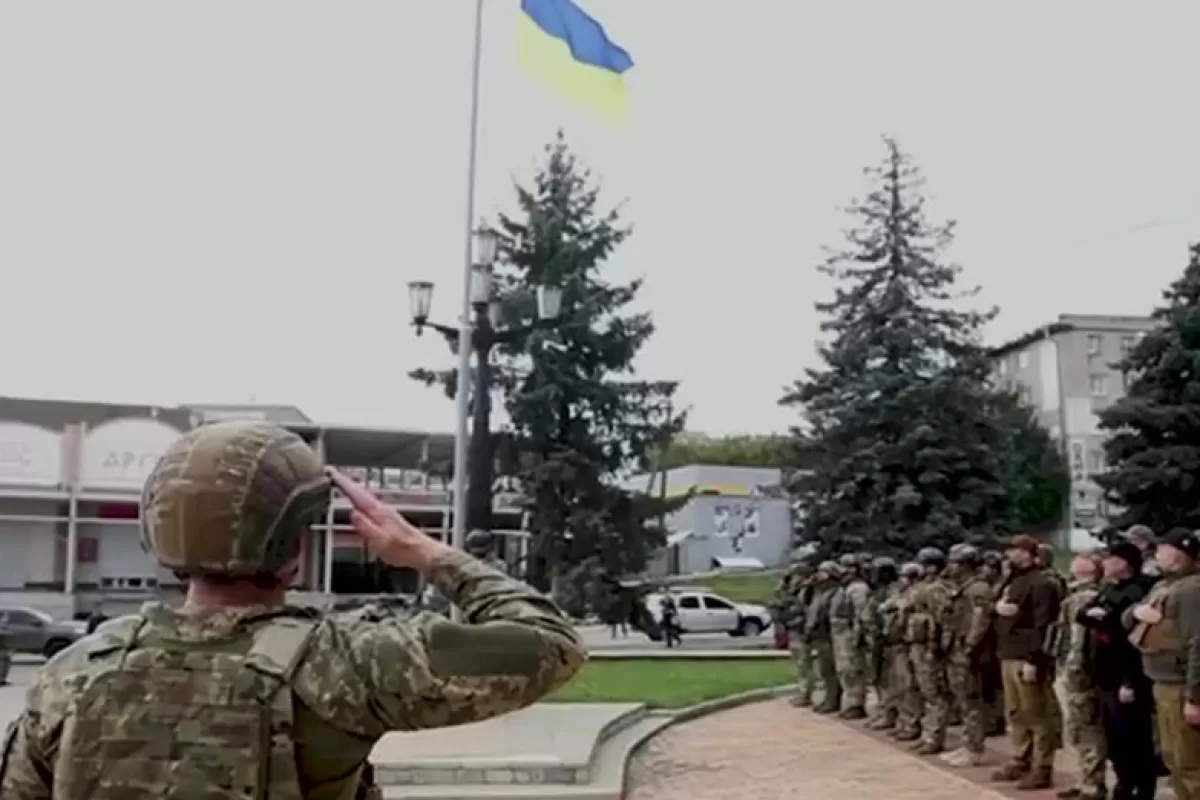
The successful counteroffensive of the Ukrainian armed forces in the Kharkiv region was not just the result of good tactical planning, but also a consequence of pro-Ukrainian sentiment at society level, determined by the country’s history, its invaluable cultural legacy and the positive experience of the first two phases of fighting off the Russian aggression.
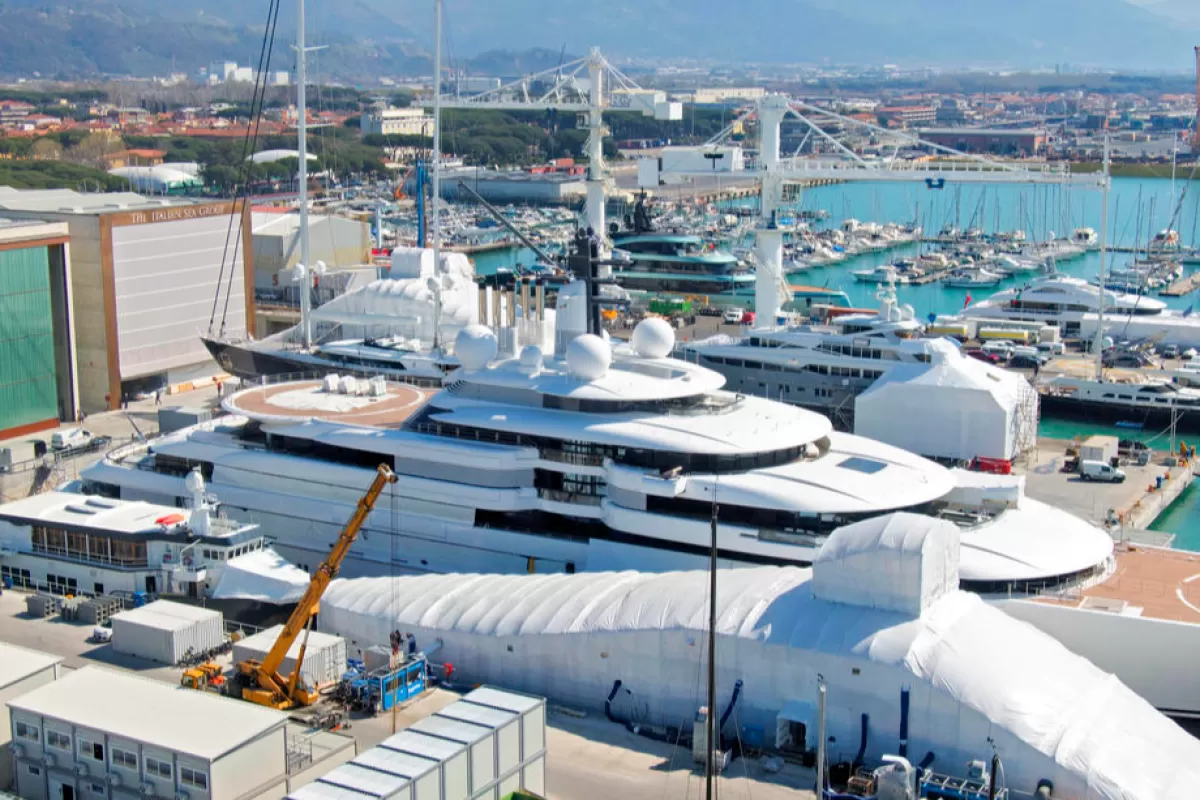
Two new investigations conducted by Russian independent journalists provide an insight into the life of luxury of the Russian leadership. Putin’s yacht, Scheherazade, cost close to 600 million EUR, a sum raised by inner-circle oligarchs, journalists say. A different investigation shows how the family of Andrey Turchak, the secretary of United Russia party and vice-president of the Federation Council, made a fortune by privatizing and destroying the most important manufacturing compound in Russia’s entire defense industry.
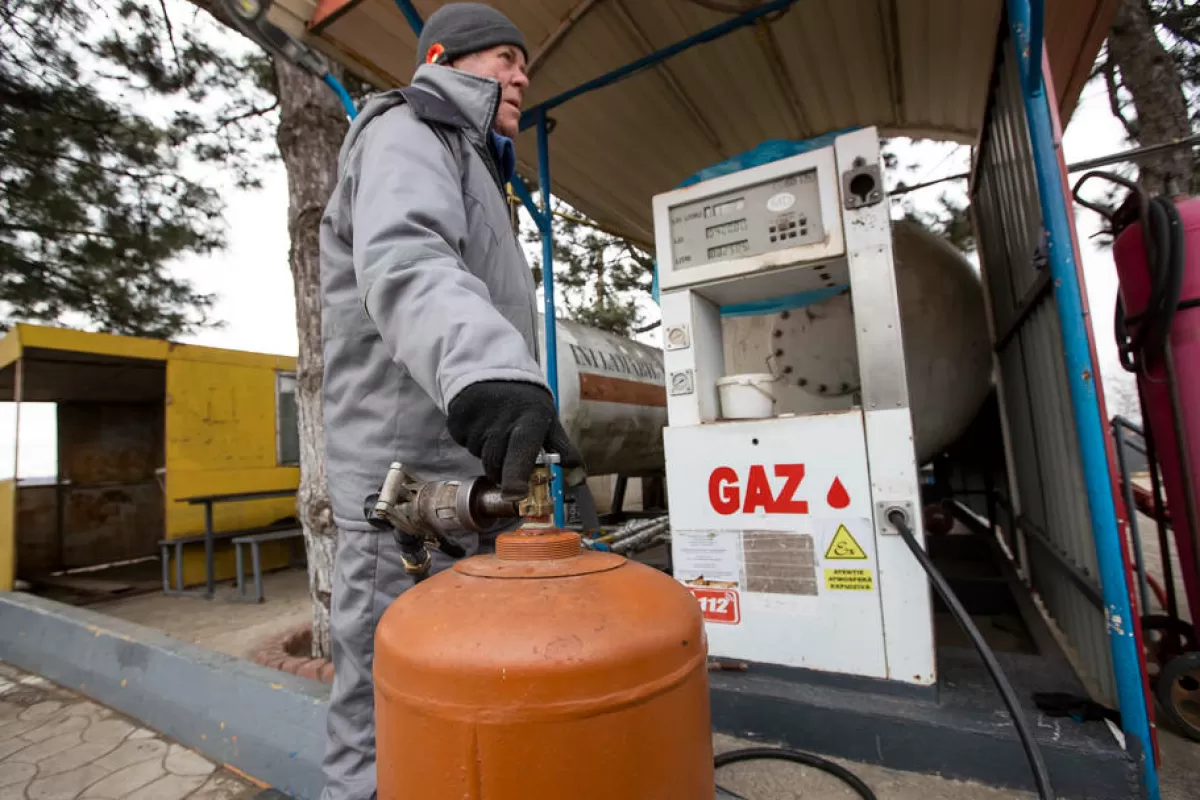
The Republic of Moldova could face a number of serious challenges this autumn, given that Russia wants to bring this country back into its orbit. At domestic level, Moscow is expected to use any leverage it has in the separatist region of Transnistria and in Găgăuzia. Adding to these pressure points will be the country’s energy concerns.

Romania, just like the other European countries, will suffer terribly because of the gas price and Russia's decision to partially halt gas supplies to Europe, but this is only the fault of the European leaders, who punished Moscow for the invasion of Ukraine. The false narrative ignores the fact that Russia needs the Europeans’ money, and the latter have taken steps to avoid a major energy crisis.

According to the pro-Kremlin media, experts with the International Atomic Energy Agency have allegedly praised the Russian army for defending the Zaporizhzhia nuclear power plant from Ukrainian bombing. In reality, there is no report or statement by IAEA experts expressing this point of view anywhere, the source cited being, in fact, the pro-Russian separatist leader Yevhen Balytskyi.

The Russian military presence in the separatist region on the left bank of the Dniester is the cornerstone of security in the region, according to a pro-Kremlin publication. In reality, the Russian forces amplified the conflict by participating in it, and Moscow's refusal to withdraw them, as promised, led to its perpetuation.
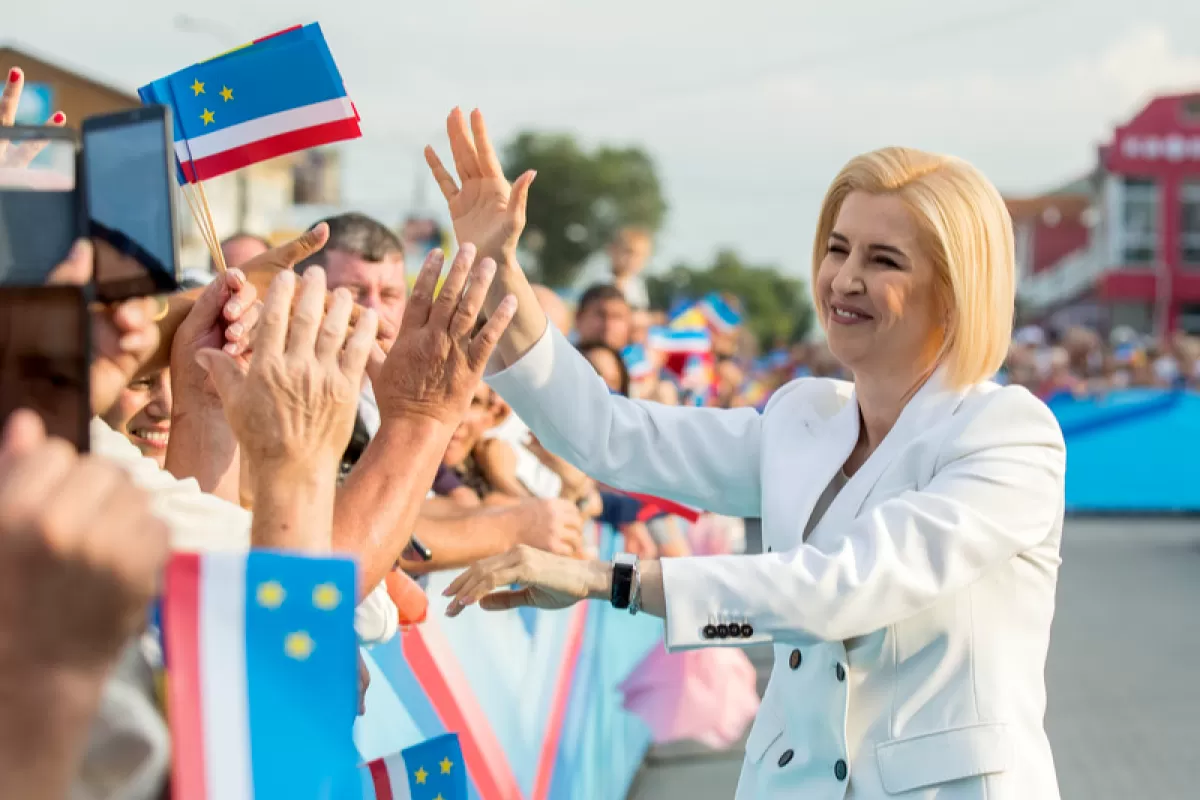
Găgăuzia is perhaps the most pro-Russian region in the Republic of Moldova. A breakaway region since the early 90s, Găgăuzia eventually recognized Chișinău’s sovereignty, although it wants to break with this country in the event of a unification with Romania or even EU accession.
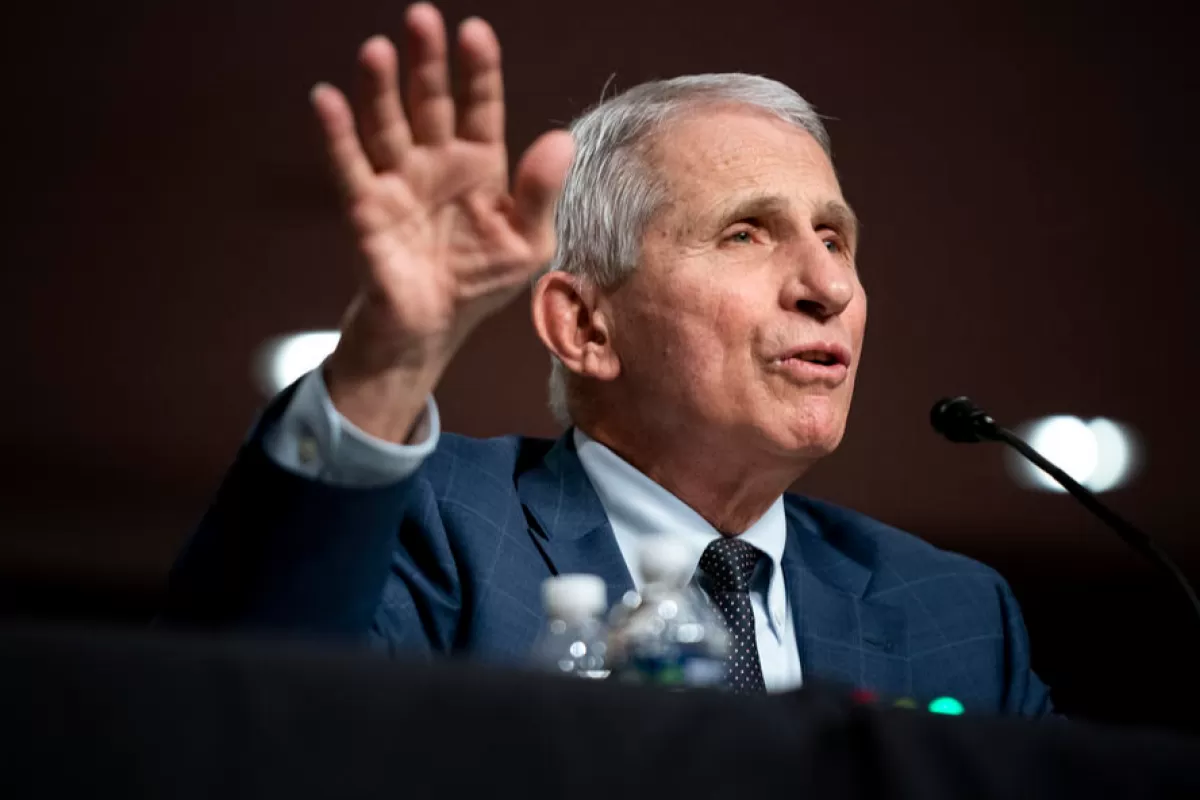
The former US chief epidemiologist has publicly admitted that US laboratories in Ukraine were involved in the production of the coronavirus, according to media in Russia and in the self-proclaimed Luhansk republic. The so-called news is a fabrication: there is no statement by Anthony Fauci regarding the production of viruses or other biological weapons in Ukraine.

An “independent expert” dispatched by the IAEA at the Zaporizhzhya NPP is actually a primatologist with long-standing political ties in Russia, the Russian independent media writes. Veridica has selected a number of articles describing how Russian children are taught to love, fight and die for the motherland and about Ukrainian fighters at the Azovstal steelworks in Mariupol.

Uncertainty linked to the official language of the Republic of Moldova, 31 years after this country proclaimed its independence, reflects just how hard defining and accepting a national identity has been. The country’s inability to settle linguistic disputes and break away from “Moldovenism”, a Soviet construct, is one of Chișinău’s many failures: after 31 years of independence, the country is still unable to fully control its territory and to ensure its energy and military security.

The Government in Chișinău is pushing for diminishing the role of the Russian language at society level, but also to undermine the rights of national minorities, rubaltic.ru writes. In fact, in recent years, nothing has virtually changed in Chișinău with respect to the status of the Russian language – Romanian speakers are often used to switch to Russian when communication to Russian speakers, films are often dubbed in Russian, while TV channels, shows and films are commonplace on the audiovisual market.

European Union Member States have created centers for training mercenaries and terrorists who will kill civilians in Donbas, reads a recent propaganda narrative promoted by the Russian government media. In fact, the EU doesn’t have any such centers on its territory. European Union Member States have repeatedly condemned international terrorism and have called on Russia to stop its armed aggression against Ukraine.
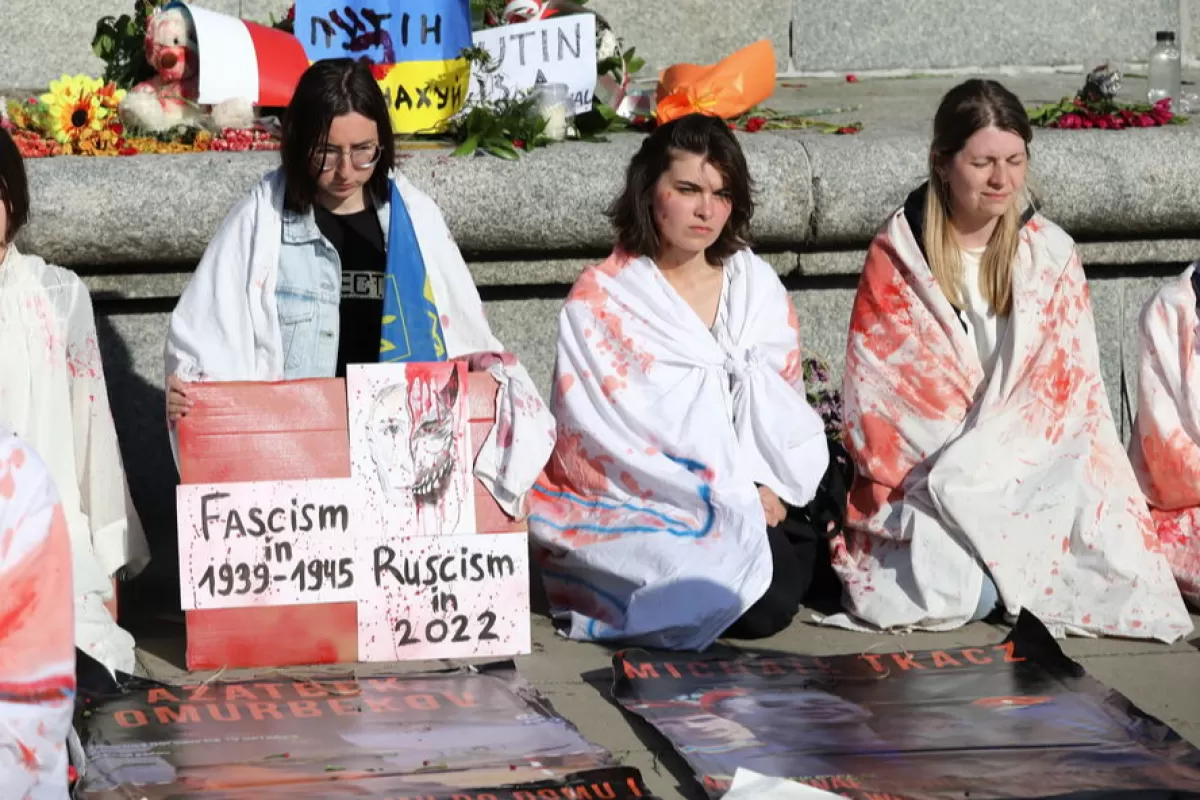
Due to Kyiv’s propaganda efforts in the last eight years, Ukrainians fail to understand that the Russian soldiers are there to liberate them, and mistakenly believe Russia is the occupier, according to false narratives promoted by Kremlin-linked media. In fact, Russia launched a conquest war, provoking the death of thousands of people and wide-reaching destruction.

Russia doesn’t recognize Kosovo as a sovereign state, but it’s using it to endorse the “independence” of separatist/captured territories in Georgia and Ukraine: Abkhazia, South Ossetia, Crimea and Donbas. Besides, the Serbian enclave in Kosovo, Mitrovica, can be used by Moscow as a genuine outpost on the border with a NATO-protected territory. Just like other “outposts” Putin is relying on in Europe, Mitrovica too can be useful when Moscow wants to get something done or simply wants to distract everyone’s attention – even from a war such as the one in Ukraine.

Russian experts and the independent media have analyzed the state of the Russian Federation’s army, which is sustaining heavy losses in the war launched against Ukraine. They also write about the obsolete Soviet weapons used by the Russians, which produce casualties among both the civilian population and among the attackers themselves. They also discuss how the war has changed the media landscape in Russia.

The United States wants a nuclear disaster to happen at the Zaporizhzhia NPP in order to wipe out any evidence of their biological weapons labs, reads a false narrative disseminated by the Russian government media. In fact, no Western state wants to see a nuclear incident, all the more so as it might have a powerful global impact, whereas the laboratories manufacturing biological weapons in Ukraine are a fabrication of Russian propaganda.

Sharing a 1000-kilometer long border with Ukraine, the Republic of Moldova has been affected by the war started by Russia on February 24 too. Veridica has spoken with several analysts in Chisinau to learn more about the main problems facing the Republic of Moldova, a state that is simultaneously facing an economic and an energy crisis, while at the same time trying to deal with a significant number of Ukrainian refugees.

After ousted PM Kiril Petkov’s coalition was adamant in its pro-West and pro-EU position, current interim government, selected by President Radev and led by caretaker PM Donev, is making chaotic moves, risking further instability.

By joining NATO, Finland and Sweden would make the Alliance the main power in the Baltic Sea. Together, the two countries boast efficient and highly trained air, sea and ground forces, a good defense industry, and quick response capabilities. They occupy strategic position. And they would greatly consolidate the security of NATO’s most vulnerable member states – the Baltic countries.

Before the war started, the Russian army was already in a tight spot, as a serviceman fighting in Ukraine revealed. The topic is discussed at length by the Russian independent media, which also writes about “Putin’s chef”, Yevgeny Prigozhin, who is also in charge of the Wagner mercenary outfit, recruiting criminals, including murders, from Russian prisons. Another issue discussed by the Russian independent media is that of Western combat equipment used by the Russian army, considering the Russian military industry lacks the necessary technology.
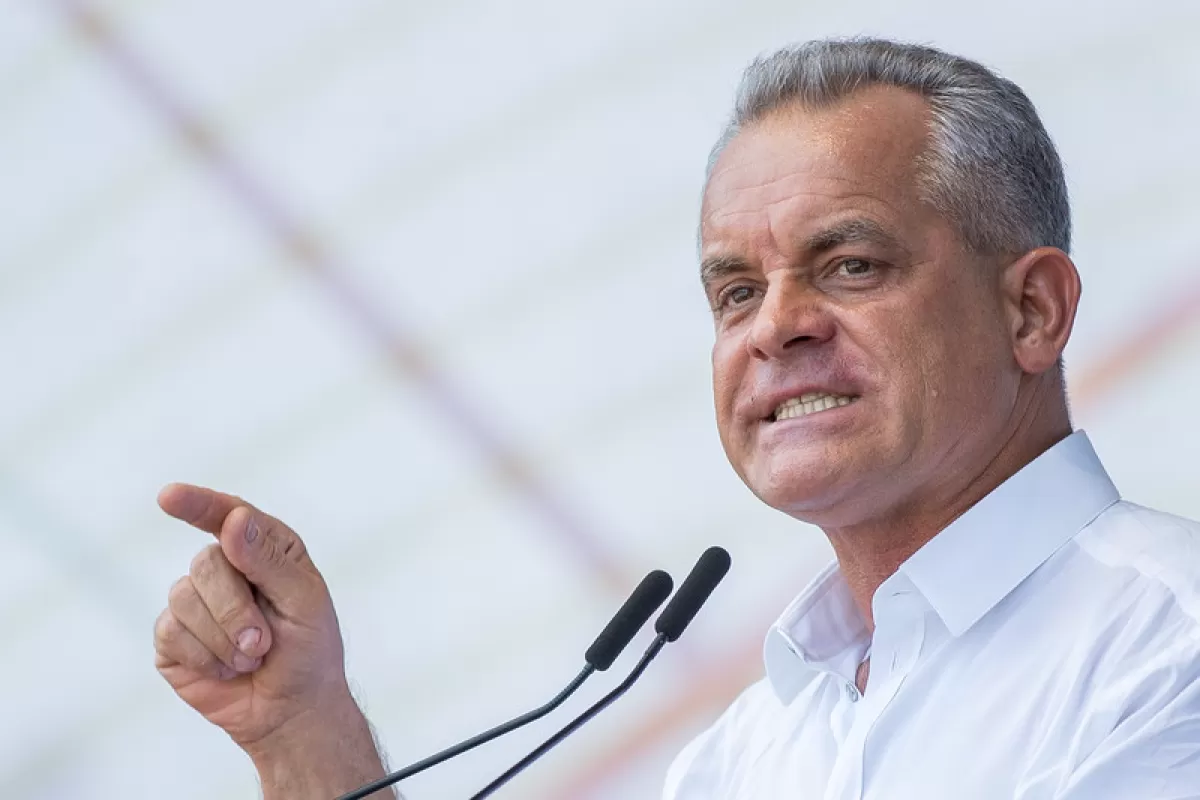
The European track of the Republic of Moldova involves a break with its recent past, when the country was virtually at the mercy of highly influential oligarchs, who used their political leverage and media influence to create a genuine kleptocracy. One solution would be to apply the model employed by Ukraine, a country that passed a anti-oligarchic law.
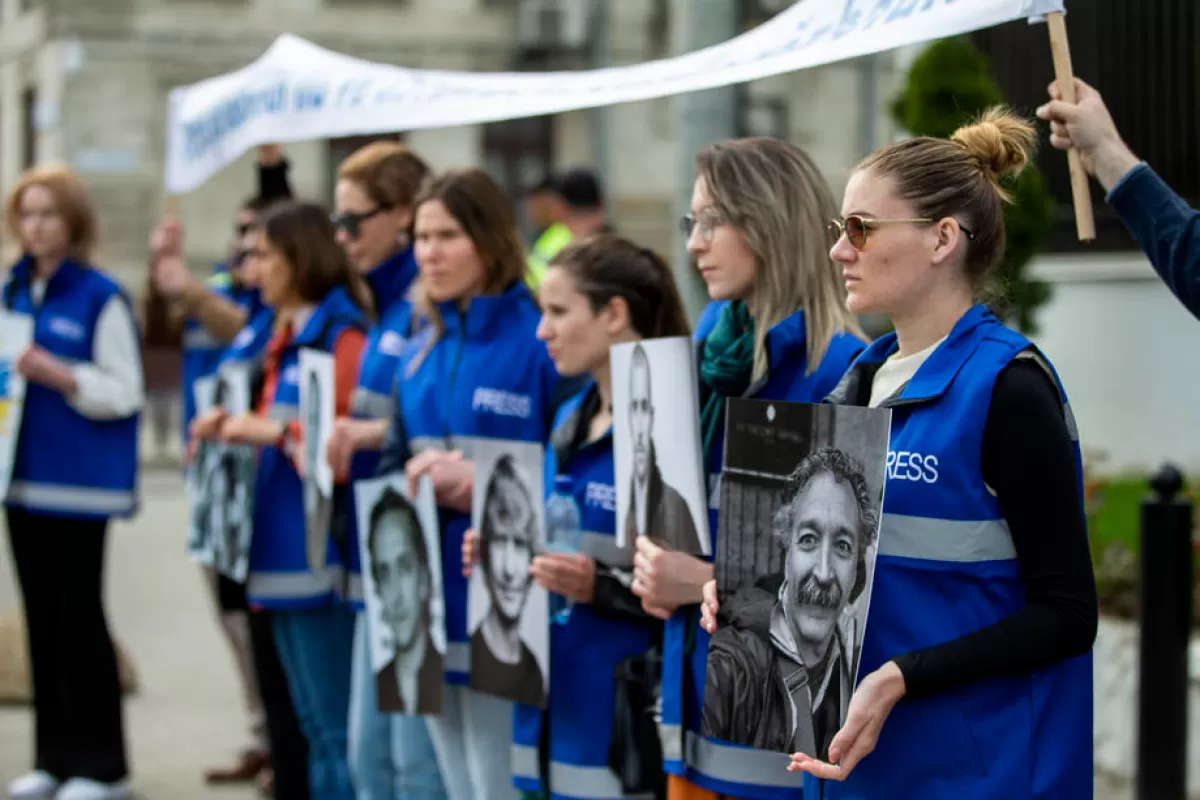
The pro-European government in Chisinau is censoring the press and getting rid of inconvenient media, according to a false narrative promoted by the Russian Foreign Ministry. The narrative is used by politnavigator.net and taken over by news-front.ru to justify possible response measures from Moscow.

Putin's objective to bring the neighboring country back into Moscow's orbit and into the so-called “Russian world” seems, more than ever, doomed to failure: Ukrainians no longer believe in the possibility of a reconciliation with Russia even after the fall of the Putin regime. The majority of Ukraine's population now wants European integration, but does not seem willing to accept all the EU's conditions.

Natalia Gavriliță’s Cabinet, supported by the majority made up of Action and Solidarity Party (PAS) MPs, has in the last year constantly navigated a number of unprecedented crises, a record-high inflation of some 32%, but it also grabbed the biggest victory since 1991 - obtaining EU candidate status.
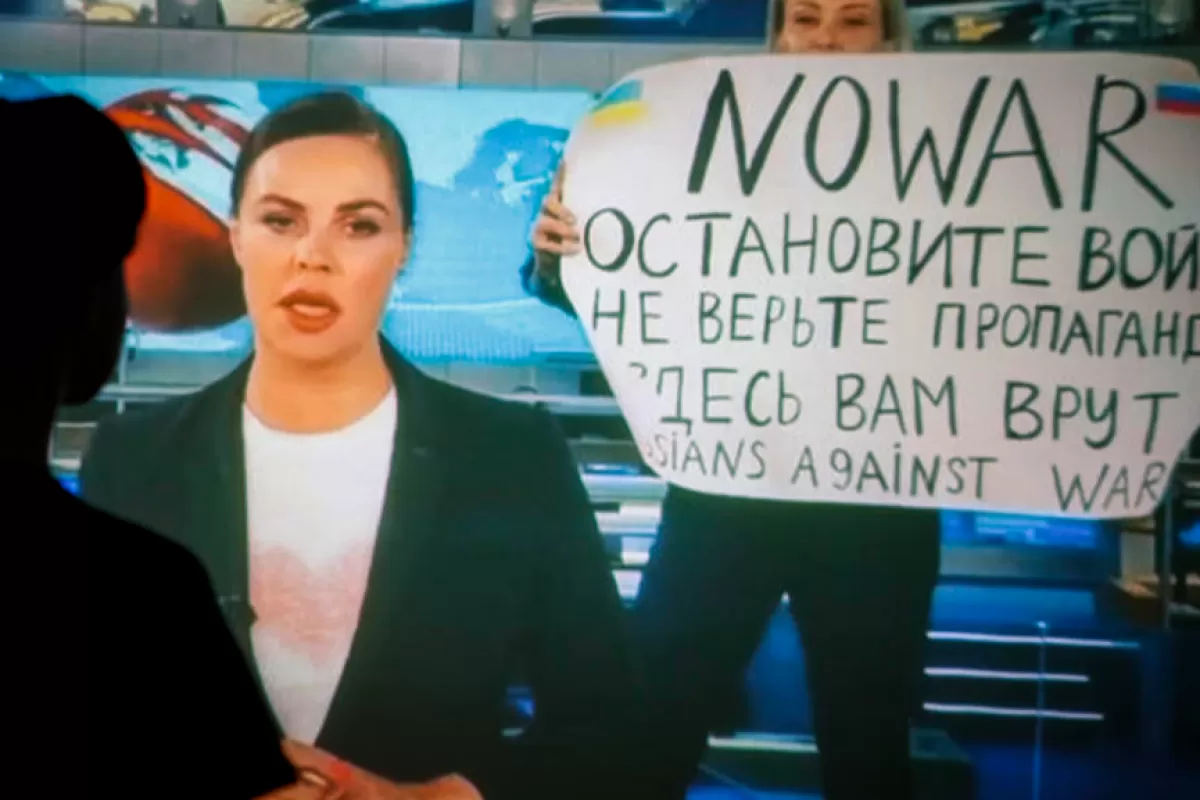
Urban legends about Ukrainians and the war in Ukraine end up being used as war propaganda by Moscow, the Russian independent media writes, also proving why the Amnesty International report criticizing Ukraine manipulates and misinforms public opinion and how the Putin regime is using nuclear weapons as a threat.

The population of the Republic of Moldova would have been illiterate, forced to serve Romanians, had its territory remained part of Romania, reads a false narrative launched by a pro-Russian publication. The narrative was launched after a settlement in the Republic of Moldova commemorated the Romanian servicemen killed in World War II.

The Republic of Moldova will call on Romania for help in case Russia attacks, and this will lead to Moldova being annexed by Romania, topwar.ru writes. Much like other Russian publications, topwar.ru is misquoting the statements made in Bucharest by president Maia Sandu, and interprets them as the announcement of an anti-Russian alliance.

Ukraine could cause a nuclear disaster if it keeps bombing the Zaporizhzhia power plant as ordered by the US, according to a propaganda narrative released by Russia's Foreign Ministry and distributed by the state media. In reality, Russia is placing weapons and military equipment on the plant’s site, endangering the nuclear security of Europe.

With NATO-Russia relations at their lowest level in history, following the latter’s invasion of Ukraine, a stretch of land connecting Poland to Lithuania has come into focus. The Suwałki Gap borders Russia’s Kaliningrad enclave. It could be a tempting target, as its control would help Russia cut NATO’s land bridge to its Baltic members. It could also be used, this time by the Alliance, to further isolate Kaliningrad. Is the Suwałki Gap the powder keg between NATO and Russia?

The war in Ukraine brought back into focus an issue that had been known for a long time: Europe’s dependence on Russian gas. First, the possibility of European sanctions was raised, then Moscow reduced supplies, which caused panic in some Western capitals. What can Europeans do to escape Russian blackmail and how much should they fear the coming winter?
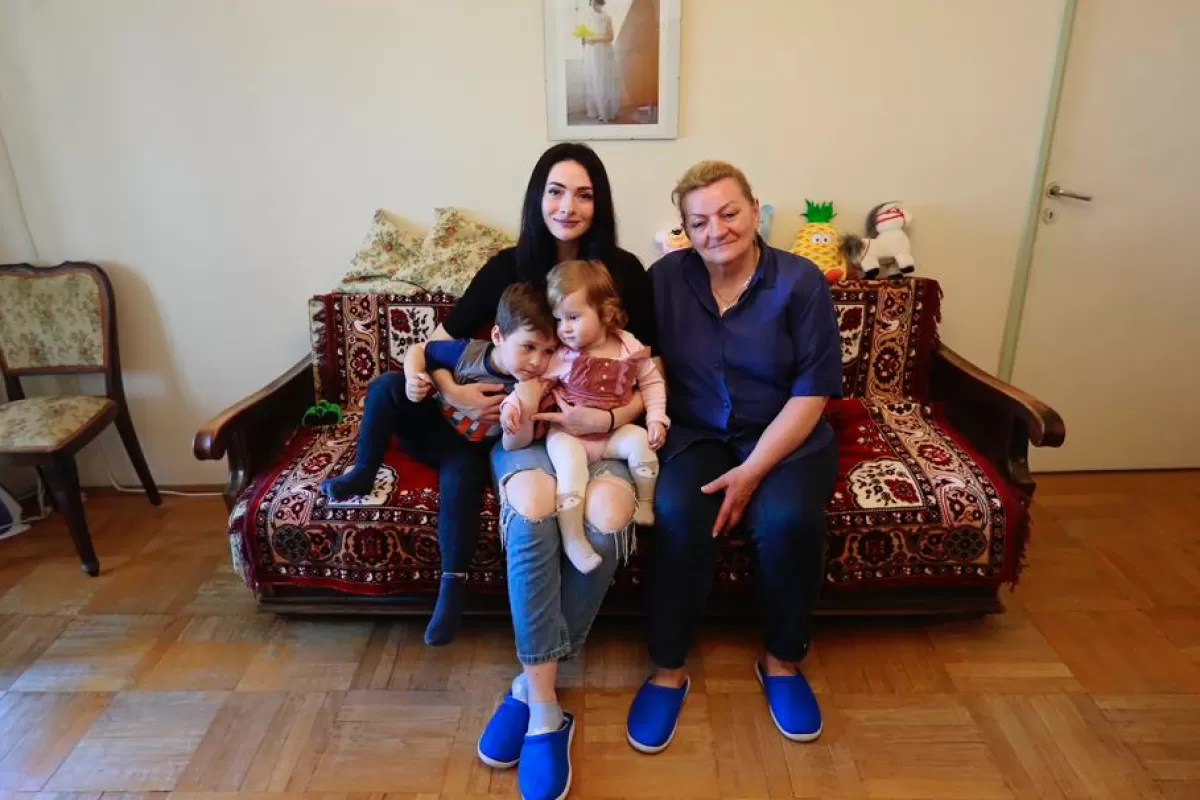
Romania will receive lots of African and Asians fleeing the Russian invasion in Ukraine, and Romanian authorities keep their nationality secret.

The Russian state press has taken out of context a statement by the former US Ambassador to Russia, Michael McFaul, and have disseminated a propaganda narrative, according to which American scholars support Putin's ideas about Ukraine. In reality, McFaul presented several opinion trends from the US and around the world on the history of Ukraine, and not on the current Russian-Ukrainian war.